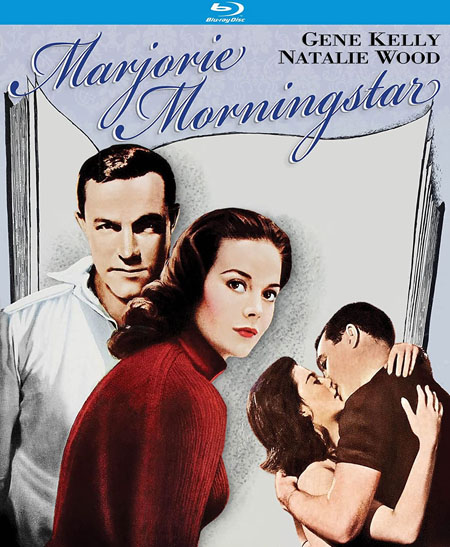
“A
VERY PRECIOUS NATALIEâ€
By
Raymond Benson
The
familiar old standard, “A Very Precious Love†(by Sammy Fain and Paul Francis
Webster) has been covered by such crooners as the Ames Brothers, Doris Day,
Jack Jones, and others, but it was Gene Kelly who introduced it in the 1958
film adaptation of Herman Wouk’s 1955 novel, Marjorie Morningstar, which was directed by Irving Rapper. The
song, played incessantly in instrumental form throughout the picture (and sung
twice by Kelly), certainly sticks with you—and it received an Academy Award
nomination for Best Song that year.
It
was the only nomination the film received, however. Despite the good intentions
of the filmmakers, the solid performances by Kelly and protagonist Marjorie
(played by the luminescent Natalie Wood), and an excellent supporting cast that
includes Ed Wynn, Claire Trevor, Carolyn Jones, Everett Sloan, Martin Milner,
Martin Balsam, Jesse White, and George Tobias, the picture doesn’t quite reach
the heights to which it aspires. This is probably due to a) running a little
long, and b) keeping one foot firmly in the old Production Code while itching
to break out and be a little more frank in its exploration of sexual mores.
Still, it’s an enjoyable, worthwhile romantic drama with some extra added value
in musical and dance numbers that are ingredients of the storyline.
Of
particular note is that this is a Hollywood movie in the 1950s that portrays
Jewish middle-class family life, complete with scenes of religious rituals and
holidays (a bar mitzvah in a synagogue, a seder meal at Passover). Has
there been such a film prior to it besides, perhaps, The Jazz Singer in
1927? This reviewer cannot think of any. Interestingly, Wouk’s novel takes
place in the 1930s—the motion picture brings the setting up to the late 50s.
This was a good call, for it allows the filmmakers to explore the sexual
yearnings of young Marjorie and her several male admirers in an era when teen
rebellion was at a boiling point. Marjorie, though, is a “good Jewish girl,â€
who doesn’t “give out free samples†while looking for the right man to marry
(as her friend Marsha apparently does).
This
was considered Natalie Wood’s first adult role, although the character begins
the story at age eighteen and ends it in her early twenties. She is quite
effective as the innocent and precious young woman who refuses to abide by her
parents’ traditions and wishes for her to find a man with a respectable income
(a doctor, lawyer). Instead, she pursues an older bohemian (played by Kelly) in
the arts because she wants to be an actress (oh, the horror!). Along the
way, she fends off other suitors, such as a successful playwright (Milner), and
a doctor (Balsam). Kelly’s Noel Airman, though, is a bit of a cad,
non-religious, and destined to live a life on the fringe. Is it a doomed love
affair? Will Marjorie eventually “grow up†and realize that this is not the
path for her? Ultimately, these themes of maturity, customs, destiny, and
choices are what Marjorie Morningstar is all about.
Kelly
is also very good in his role, for once playing a sometimes-unlikeable
character. Ed Wynn has some scene-stealing comic moments, and Carolyn Jones, as
Marsha, is wonderfully liberal and spunky in her efforts to steer Marjorie to
take a walk on the wild side for a change.
Kino
Lorber’s new Blu-ray restoration is quite good, despite the two or three brief
flashes of color unsaturation. Otherwise, this is a decent transfer that
captures that late fifties look of “WarnerColor†film stock. There are English
subtitles for the hearing impaired, but, alas, no other supplements except for
theatrical trailers for this and other Kino Lorber titles.
Marjorie
Morningstar is
a good date movie, especially for the Boomer crowd (and older) that can recall
these simpler times. There’s also a good chance you won’t be able to get that
song out of your head after a viewing.
CLICK HERE TO ORDER FROM AMAZON